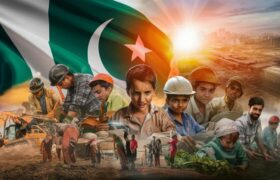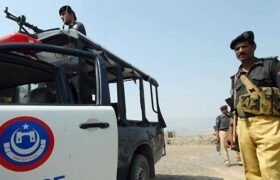The conflict between India and Pakistan over Kashmir dates back to 1947 when the British withdrew from the subcontinent and the colonial empire divided into two nation states. Kashmir acceded to India after an attack from the tribal invaders. However, Pakistan views Kashmir as an integral part of its territory, owing to the strategic location and the Islamic identity of the valley. Since then, the territory has been disputed between India and Pakistan, with bilateral talks at times, but often a militaristic approach to resolving the issue.
Kashmir is an ideological and territorial dispute between Pakistan and India over which four major wars have been fought along with rounds of conferences, but this outstanding issue is still grounded in its place without any peaceful and rational solution in sight. The attempts by various leaders showed their political acumen and vision but the revoking of Article 370 and 35A and granting a special status by Modi on 5th August, 2019 has exacerbated the situation and showed the world a true face of Modi’s Hindutva. This was the first unilateral attempt by India to transform Kashmir demographically. This attempt has deprived Kashmiris from their basic human right i.e. freedom.
The strategic importance of the disputed area is of the prime importance here. Kashmir’s strategic importance lies in the fact that its borders meet with China and Afghanistan and are close to Russia. Almost all the rivers, which flow through Pakistan, originate from Kashmir and this is why both the countries ignore stepping back claiming this territory.
Pakistan’s Kashmir policy in the last decade has been reactionary, largely responding to India’s moves in the subcontinent. This characteristic was observed during the violent protests following the killing of Kashmiri militant leader Burhan Wani in 2016 by Indian soldiers. Following Wani’s death, violent protests ramped up; 90 civilians lost their lives and over 2,300 were injured. Showing solidarity with the militant leader, the then Pakistani Prime Minister Nawaz Sharif called Burhan Wani a “martyr” and said that July 19 will be observed in Pakistan as “Black Day” to express solidarity with the people of Kashmir.
Prime Minister Imran Khan has declared that he will strongly propound Kashmir’s cause in his address to the UN General Assembly (reportedly on Sept 27) and in his meetings with other heads of state and government. Yet, Kuwait was supportive in the UNSC. Furthermore, Saudi Arabia has issued a statement of concern as has the OIC Secretariat and the Islamic Human Rights Council. Hopefully, the OIC will eventually come together to defend the fundamental rights of the Kashmiris.
There is no doubt that the Arab and Islamic world is weak and divided. The OIC’s voice has been muted, not only on Kashmir, but even on Palestine, the raison d’être for its creation. Its unity and influence cannot be revived instantly by Pakistan. The recent criticism by Shah Mehmood Qureshi on OIC was justified as the Muslim world is silently watching all the atrocities.
The failure of diplomacy to resolve the Kashmir issue attracted international and regional attention to it. After the wars of 1948, 1962 and 1965, determined efforts were made to resolve this issue. In 1948, the United Nations became deeply involved but India did not show flexibility. After the India-China border War of 1962, there were intense but fruitless American and British efforts to bridge a gap between India and Pakistan. The end of 1965 war saw Soviet Union as a regional peacemaker. The Soviets did manage to promote a peace treaty at Tashkent, but this could not establish peace in the region and soon Indian involvement in East Pakistan led to her separation in 1970-71.
Kashmir is an international issue and needs international attention as the both the opponents are nuclear powers and the area has already been regarded as ‘flash point’ by former US president Bill Clinton. In this regard, more important will be the positions of the major powers, especially the five permanent members of the UNSC. Geopolitics will play an important part in determining their positions.
So far, China has declared its support for Pakistan’s position. Pakistan’s strategy will have to build on this critical support. Russia will walk a fine line between its traditional relationship with India and its new strategic partnership with China, and by extension, with Pakistan. The US will use India’s self-created vulnerability on Kashmir to keep it in line, as it flirts with Pakistan to get the Afghan deal done with the Taliban. (Trump’s mediation offer was a non-starter and should not divert Pakistan’s attention.) France although is desperate to replace Russia as India’s main arms supplier and will continue to act as India’s surrogate in the UNSC. The UK may be sympathetic on human rights issues, but like many others, will take refuge in the impotent advocacy of ‘bilateral’ Pakistan-India talks on the Kashmir dispute.
While building its strategy with China’s support, Pakistan would also need to secure US acquiescence for its Kashmir objectives. For this purpose, Islamabad had also used the leverage provided by its facilitation of the US-Taliban negotiations. France will be needed to be neutralised by stronger diplomatic and other measures.
The compulsion for the Security Council and the International Community to intervene in the dispute and promote a solution will depend on Pakistan’s persistence in propagating the Kashmir cause in the face of Indian threats and coercion, and even more importantly, on the resilience and strength of the Kashmiri people’s freedom struggle. The world will intervene if ethnic cleansing and genocide occurs in Kashmir or if there is a real danger of another Pakistan-India war.
Confronted by Modi’s attempt to eliminate Kashmir’s identity and autonomy, the people of occupied Jammu & Kashmir have no choice but to resist. This will now be a universal sentiment among Kashmiris. There will be few fence sitters or Indian collaborators. There is also likely to be greater support among the Kashmiris for armed resistance.
Pakistan will need to adopt a clear and politically defensible position on the Kashmiri freedom struggle. On the one hand, it must propagate the legitimacy of the struggle because of international law and the numerous UN resolutions while on the other hand, Islamabad will need to distance itself from proscribed terrorist organisations that may enter the anticipated fray in occupied Jammu & Kashmir.
Ultimately, if India confronts a Kashmiri insurgency, a resilient Pakistan, international pressure, and an impaired economy, it may agree to negotiate a mutually acceptable settlement with Pakistan and the Kashmiris. But the Hindu fascists may choose not to compromise. Bleeding in occupied Kashmir, they are likely provoking another war with Pakistan, bringing Armageddon to South Asia and much of the world.
The international community must thus act now to stop them.
“We must learn from the history that there is no military solution for Kashmir issue… We have to understand this reality!”
-Pervez Musharraf




